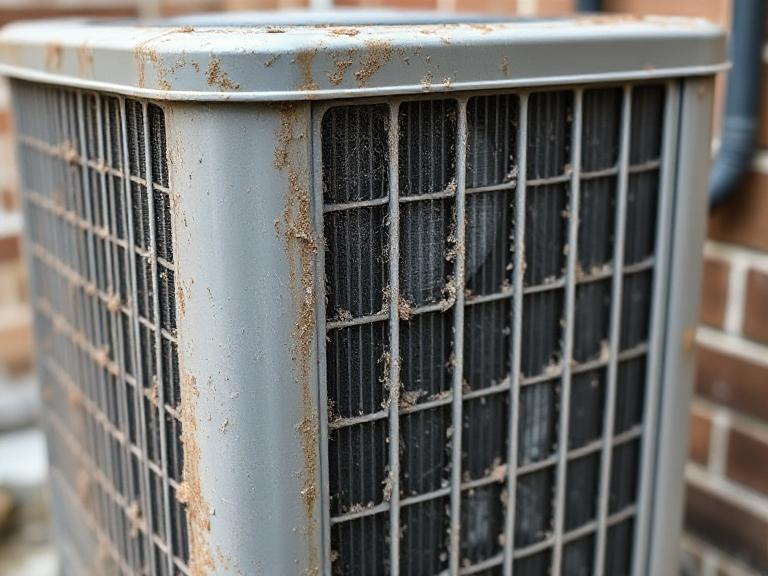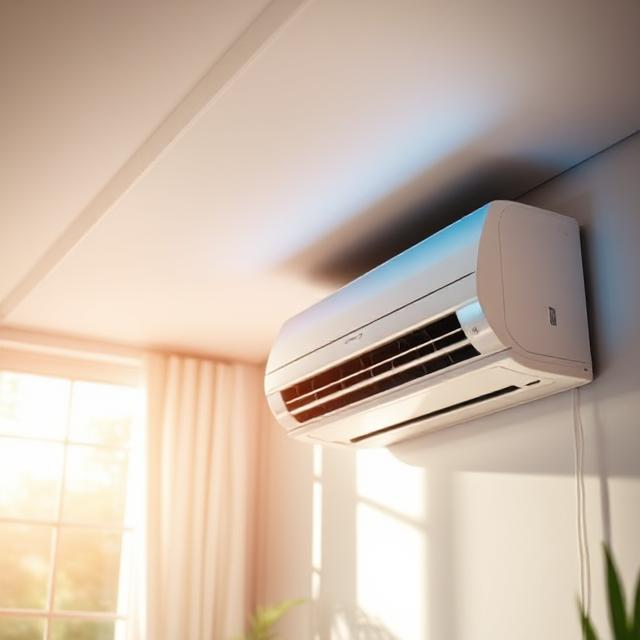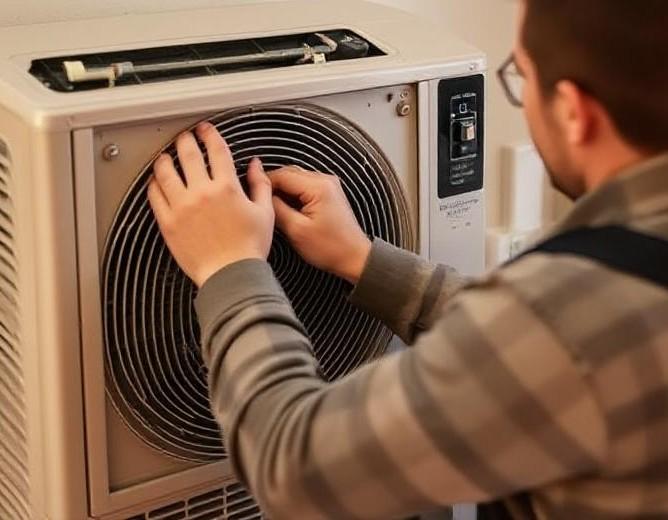How Much Should An AC Charge Cost?
Introduction
When it comes to achieving comfort during those hot summer months, an air conditioning unit can be a true savior. However, with great comfort comes great responsibility—specifically in the form of budgeting for costs associated with AC charging and regular servicing. This comprehensive guide aims to demystify these expenses, helping you make informed decisions while ensuring your home remains a cool sanctuary. From understanding the costs involved to finding AC service near me, we've got you covered.
Table of Contents

- 1.1 Types of Air Conditioning Systems
- 1.2 How AC Units Work
- 2.1 Benefits of Routine Maintenance
- 2.2 Signs That Your AC Needs Servicing
- 3.1 What is AC Charging?
- 3.2 Factors Affecting Charging Costs
- 4.1 Average Costs of Servicing
- 4.2 DIY vs Professional Service: What's Best?
- 5.1 Seasonal Considerations
- 5.2 Manufacturer Recommendations
- 6.1 Researching Local Options
- 6.2 Reading Reviews and Ratings
- 7.1 Different Types of Refrigerants
- 7.2 Environmental Impact and Regulations
- 8.1 Importance of Energy Ratings
- 8.2 Tips for Maximizing Efficiency
- 9.1 Cost Implications
- 9.2 Planning Ahead for Emergencies
Understanding Your Air Conditioning System
Types of Air Conditioning Systems
Air conditioning units can vary widely in type, each with its unique set of features, benefits, and costs associated with them.
-
Central Air Conditioning: Often found in larger homes, this system uses ductwork to distribute cool air throughout multiple rooms.
-
Window Units: Ideal for single-room cooling, window units are generally more affordable but may not provide sufficient cooling for larger spaces.
-
Ductless Mini-Split Systems: These systems offer flexibility and efficiency without the need for ductwork, making them suitable for homes without existing ducts.
-
Portable Units: These are versatile options that can be moved from room to room as needed but often come with less cooling power.
Understanding your specific system type will help you better estimate servicing costs and maintenance needs.
How AC Units Work
Air conditioning units function by removing heat from indoor air and transferring it outside, effectively cooling your living space.
-
The process begins when warm indoor air is drawn into the system through return vents.
-
A refrigerant absorbs this heat within the evaporator coil.
-
The compressor then pumps the refrigerant to the outdoor unit where the heat dissipates into the atmosphere.
This cycle continues as long as your thermostat signals a need for cooling.
Why Regular Servicing is Essential
Benefits of Routine Maintenance
Regular servicing ensures your air conditioning unit operates at peak efficiency while extending its lifespan.
-
Improved Efficiency: Routine checks help maintain optimal performance and energy efficiency.
-
Prevention of Breakdowns: Catching small issues before they escalate saves money on major repairs.
-
Healthier Indoor Air Quality: A well-maintained system filters out dust, allergens, and pollutants from your home environment.
Signs That Your AC Needs Servicing
While regular maintenance is crucial, knowing when your system requires immediate attention is equally important:
-
Unusual noises or vibrations.
-
Inconsistent temperatures across different rooms.
-
Increased energy bills indicating inefficiency.
If you notice any of these signs, it's time to search for “ AC service near me.”
Costs Involved in AC Charging
What is AC Charging?
AC charging refers to replenishing refrigerant levels in your air conditioning system when they drop below optimal levels due to leaks or natural evaporation over time.
Factors Affecting Charging Costs
Several factors can influence how much you might pay for charging services:
-
Type of Refrigerant Used: Newer refrigerants may cost more than older types due to environmental regulations.
-
Service Provider Rates: Different technicians will have varying rates based on their experience and location.
-
Extent of Issues Found During Service: If further repairs are necessary beyond just charging, expect additional charges.
Budgeting for Regular Servicing
Average Costs of Servicing
On average, homeowners should budget between $75-$150 annually for standard maintenance services depending on their region and type of unit.
Breakdown Table:
| Service Type | Estimated Cost | |---------------------|----------------| | Basic Inspection | $50-$100 | | Cleaning Coils | $30-$60 | | Refrigerant Recharge | $100-$300 |
These costs can vary significantly based on local market rates and specific service provider pricing structures.
DIY vs Professional Service: What's Best?
While some homeowners may consider tackling minor maintenance tasks themselves (like changing filters), professional service is almost always recommended due to:
-
Technical expertise required.
-
Specialized tools used in servicing tasks.
It's often worth investing a bit more upfront than risking larger repair bills down the line from improper handling.
How Often Should You Service Your AC?
Seasonal Considerations
Most experts recommend scheduling maintenance at least once a year; ideally before summer kicks in full swing when demand peaks.
This timing allows technicians to identify potential issues before you're reliant on your unit during scorching temperatures!
Manufacturer Recommendations
Referencing manufacturer guidelines is essential as many warranties require proof of regular servicing every year or two years depending on usage patterns outlined in user manuals.
Finding Reliable AC Services Near You
Researching Local Options
When searching online or asking neighbors about “ AC service near me,” consider creating a list that includes:
-
Company qualifications (licensed & insured).

-
Years in business (experience matters!).
Reading Reviews and Ratings
Online platforms like Google Reviews or Yelp can provide invaluable insights into local service providers’ reputations based on customer experiences!
Look out especially for feedback regarding punctuality, professionalism, quality workmanship—and don’t hesitate to ask friends or family who they've had success with!
Understanding Refrigerants and Their Costs
Different Types of Refrigerants
Refrigerants play a crucial role in the efficiency and environmental impact associated with HVAC systems:
- R410A is commonly used today due to being environmentally friendly compared to older blends like R22 (which has been phased out).
Knowing what type your unit uses will aid budgeting efforts since retrofitting older models could incur significant expense if conversion becomes necessary down the line!
Environmental Impact and Regulations
As awareness around climate change increases globally so too does legislation targeting harmful substances released into our atmosphere through HVAC units—meaning it’s critical that both consumers AND technicians stay informed about best practices concerning refrigerant management!
Energy Efficiency: Saving Money on Cooling Costs
Importance of Energy Ratings
Focusing on energy-efficient models not only reduces environmental footprints but also translates directly into savings over time! Look out particularly for SEER ratings (Seasonal Energy Efficiency Ratio) when selecting new systems—higher SEER values indicate superior efficiency leading potentially lower monthly utility bills!
Quick Reference List:
| SEER Rating | Efficiency Level | |---------------------|---------------------| | Below 13 | Poor | | Between 14 –16 | Average | | Above 17 | High Efficiency |
Tips for Maximizing Efficiency
Besides choosing an efficient model initially here are some simple strategies homeowners can adopt:
-
Set thermostats higher when away from home;
-
Ensure vents remain unobstructed by furniture;
And remember—keeping outdoor coils clean promotes airflow which helps units run smoothly all season long!
Emergency Repairs vs Scheduled Maintenance
Cost Implications
Emergencies tend typically lead towards higher repair bills since urgent service often incurs premium rates! Regularly scheduled maintenance mitigates risks posed by sudden breakdowns thereby preserving budgets over time while ensuring comfort remains intact year-round!
Planning Ahead for Emergencies
To avoid costly surprises consider setting aside funds specifically earmarked just-in-case—a good rule-of-thumb would be around $300-$500 depending upon age/condition level(s) exhibited by current equipment installed prior—this way peace-of-mind accompanies proactive measures taken beforehand instead waiting until disaster More help strikes unexpectedly…
Conclusion
Navigating through budgeting concerns surrounding air conditioning involves understanding various components including types available; routine checkups; seasonal considerations; emergency preparedness—all while keeping an eye towards overall spending! By taking proactive measures now—including researching “AC services near me” alongside adhering closely established guidelines—you stand poised not only ensure comfortable living conditions but also safeguard against unexpected financial burdens arising later down track! Remember—it’s always better safe than sorry when it comes maintaining vital aspects homeownership such as heating/cooling systems we depend upon daily basis!
FAQs
Q1: How often should I get my AC serviced?
A1: It's advisable to schedule servicing at least once a year, preferably before peak usage seasons like summer.
Q2: What are common signs that my AC needs servicing?
A2: Look out for unusual noises, inconsistent cooling across rooms, or higher-than-usual energy bills as indicators that professional attention may be required soonest possible!
Q3: Are there DIY tasks I can perform on my own?
A3: Simple tasks such as changing filters regularly or cleaning visible debris around outdoor units can help maintain performance—but always consult professionals when uncertain!
Q4: What affects the cost of refrigerant replacement?

A4: The type used along with labor rates charged by technicians significantly influence final pricing structure seen by customers seeking repairs involving refrigerants specifically!
Q5: How do I find reputable services nearby?
A5: Online searches combined with personal recommendations from friends/family yield valuable insights regarding trustworthy companies offering quality work within desired geographical areas most conveniently located close-by residents' homes alike!
Q6: What’s included during regular maintenance visits?
A6: Typically includes inspections/checks conducted throughout key components such cleaning coils replacing filters checking refrigerant levels etc., ensuring everything functions efficiently before warmer months arrive fully underway!